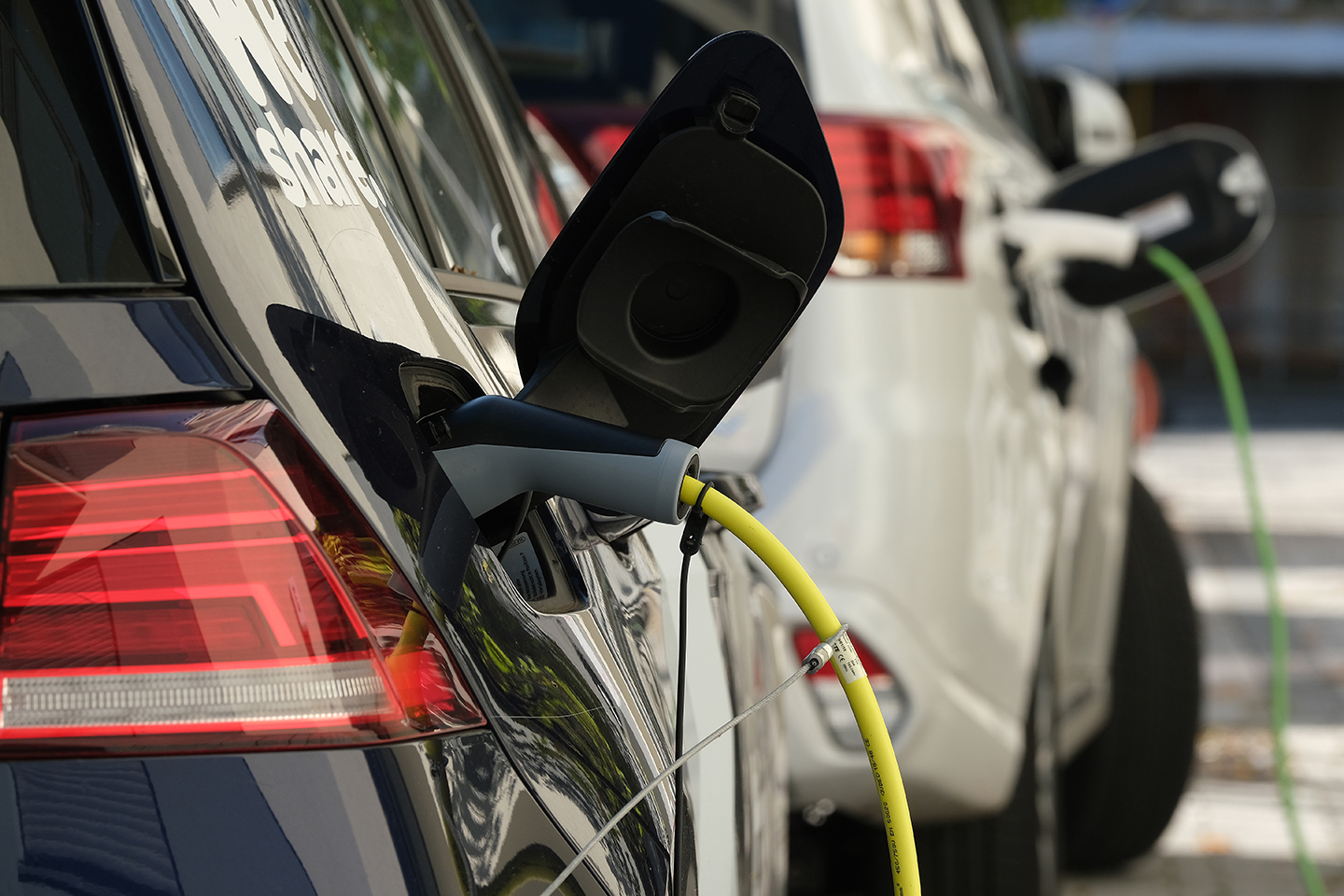New Battery Design Can Charge an Electric Car In 10 Minutes

Credit to Author: Sarah Wells| Date: Wed, 30 Oct 2019 20:05:32 +0000
A new lithium-ion battery design makes it possible for electric vehicle drivers to charge their cars and hit the road in as little as ten minutes, according to a new study.
The quick charge gives drivers up to 200 miles per ten minute charge while maintaining 2,500 charging cycles, the researchers behind the study say. That is equivalent to over half a million miles throughout the battery’s life, a press release notes. All that happens in the time it takes you to brew a morning coffee.
Researchers say that this design could finally make electric vehicles a viable competitor for traditional vehicles. “Range anxiety” is the fear of being stranded if your electric vehicle runs out of charge which has been a common barrier to adoption for many drivers.
In the study, published on Wednesday in Joule, researchers from Penn State University describe an asymmetric approach to fast-charging batteries that mitigates the effects of natural degradation of the lithium-ion batteries. This is achieved by quickly charging at a high temperature and then storing the charge more slowly at a cooler temperature. The researchers found that this approach allowed the batteries to avoid performance loss usually created from "battery plaque," called lithium plating or solid-electrolyte-interphase (SEI) growth, which typically grows on batteries over time when exposed to heat.
This is a departure from other forms of lithium batteries which charge and store at the same temperature and can take anywhere from 40 to 60 minutes (or more) to charge, depending on the temperature of the charging area.
“No matter the vehicle is in the summer of Arizona or winter of Wisconsin, the battery is always charged at 60 degree C," Xiao-Guang Yang, coauthor and assistant research professor at Penn State, said in an email. "That said, our approach, for the first time, makes charging of electric vehicles truly weather- and region-independent.”
The researchers were able to achieve this lopsided charging effect by adding a thin nickel foil to the battery, which absorbs the initial brunt of the charging heat while warming the battery and then transferring heat to the battery itself for a quick, high-temperature charge. Counterintuitively, but luckily, the team also observed that quickly charging their batteries at high heat also reduced the cooling needed afterwards because the battery had less time to generate significant internal heat.
“We demonstrate that charging a battery at a high temperature (60 degrees C) is, in fact, highly beneficial in the context of extreme fast charging, as long as we limit the time of [exposure],” said Yang. “We believe that this is a revolutionary approach and completely changed the conventional wisdom regarding the optimal temperature for lithium-ion batteries.”
In order to charge your car in just ten minutes with these new batteries in the future though, you might have to buy a new car or at least replace the battery.
“[The car] would require a new battery with our internal heating structure built in,” Chao-Yang Wang, coauthor of the study and director of the Electrochemical Engine Center at Penn State, said in an email.
While there are other batteries in development that would avoid lithium plating and the like altogether, Yang says that these are far from commercialized and would have their own sets of issues as well, including a slower charge due to their comparatively larger size.
Meanwhile, in the time it takes to scroll through your Twitter feed, this new lithium-ion battery could charge your car and send you back on the road.
“Currently, lithium-ion battery is the only viable technology for vehicle applications,” said Yang. “In terms of future research, we are pursuing to reduce the charging time from 10 min as of this work further to 5 min. If we achieve that ambitious goal, charging an EV is literally the same as refueling a gasoline car.”
This article originally appeared on VICE US.